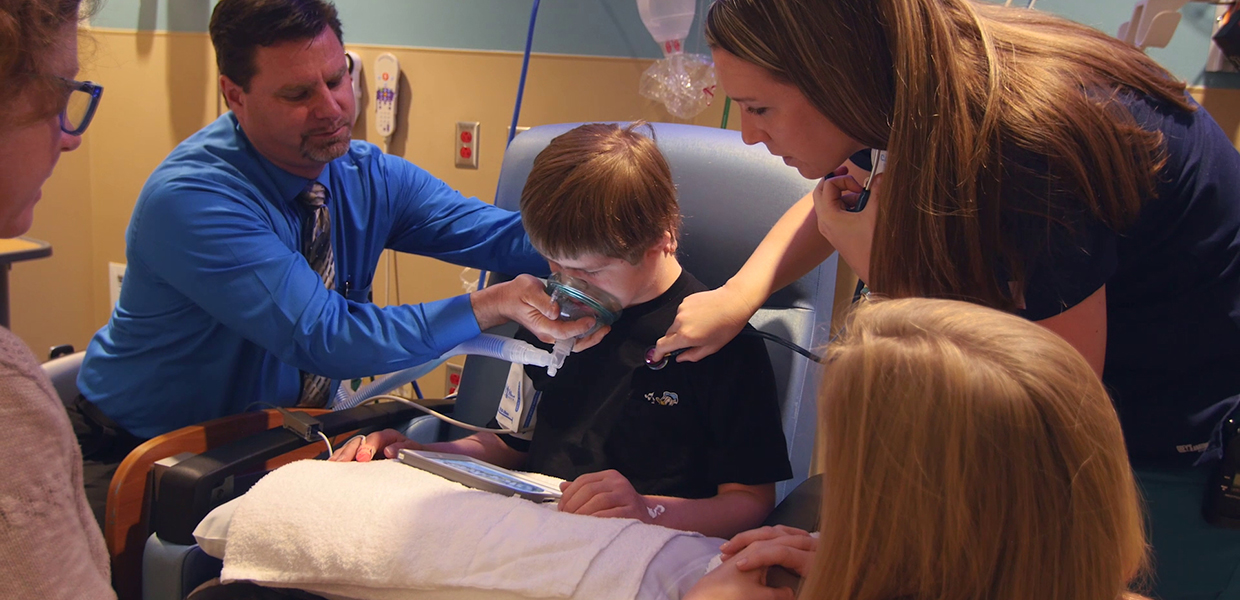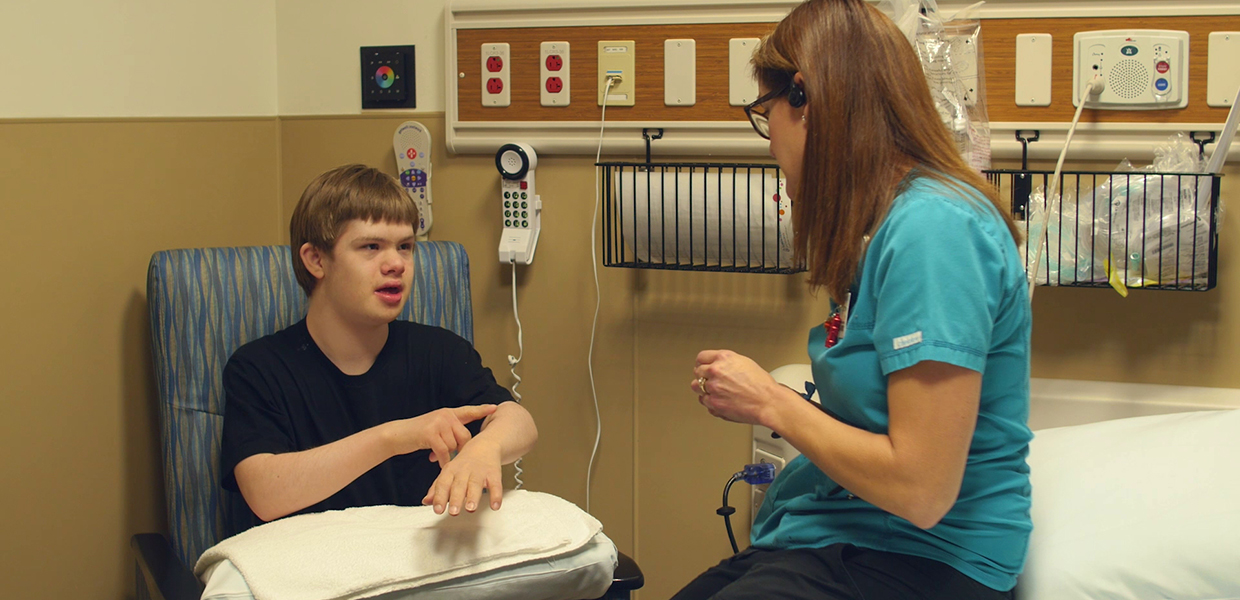

Giving blood is an uneasy experience for many people. But, for those with autism and other special needs, the simple procedure can be outright terrifying.
Sean Sikora, a 15-year-old with Down syndrome, was so distressed when he came for bloodwork as part of his treatment for kidney disease, physicians and nurses had to sedate and forcefully restrain him.
Not anymore!
Adventist Health System’s Florida Hospital for Children developed a new program that provides customized treatment plans for patients with special needs, which allows caregivers to learn about the patient’s triggers, how to keep them calm, and deescalate issues before they can arise.
The program — called S.T.A.R. — has been so successful with pediatric patients that Florida Hospital is now beginning to expand the initiative, and make training available for all Florida Hospital clinicians.
“Hospitals can be scary, especially for our patients who can’t communicate how they feel or understand what’s happening around them,” said Chantelle Bennett, child life manager at Florida Hospital for Children. “We’re dedicated to providing compassionate care to all of our patients, and in my heart, I know that this program has made a life-changing difference for so many of our patients and their families.”
In Sikora’s case, the simple act of being touched was a trigger for panic and aggressive behavior. But now, there’s a formulated routine with Sikora for each of his visits — he knows he will watch Tom and Jerry, have numbing cream applied to his hand to help ease the discomfort, and child life specialists will be by his side.
Jenn Sikora, his mother, said that prior to the S.T.A.R program, he had to be held down during procedures, a difficult situation for her to witness. “Now, he’s happy to come to the hospital, and talks about the people and the procedure. He looks forward to coming in. I tell everyone I know because this has made a drastic change in our lives.”
The S.T.A.R. program (named for “Sensory, Tactile, Auditory Rock stars”) is built on specialized training for child life specialists, nurses, and other clinicians, and a standardized treatment form accessible by the entire care team.
The program has helped special needs patients receive routine preventative care with ease, making it easier to manage chronic diseases, and receive timely diagnoses for new conditions.
Adventist Health System | June 2018



Comments are closed.